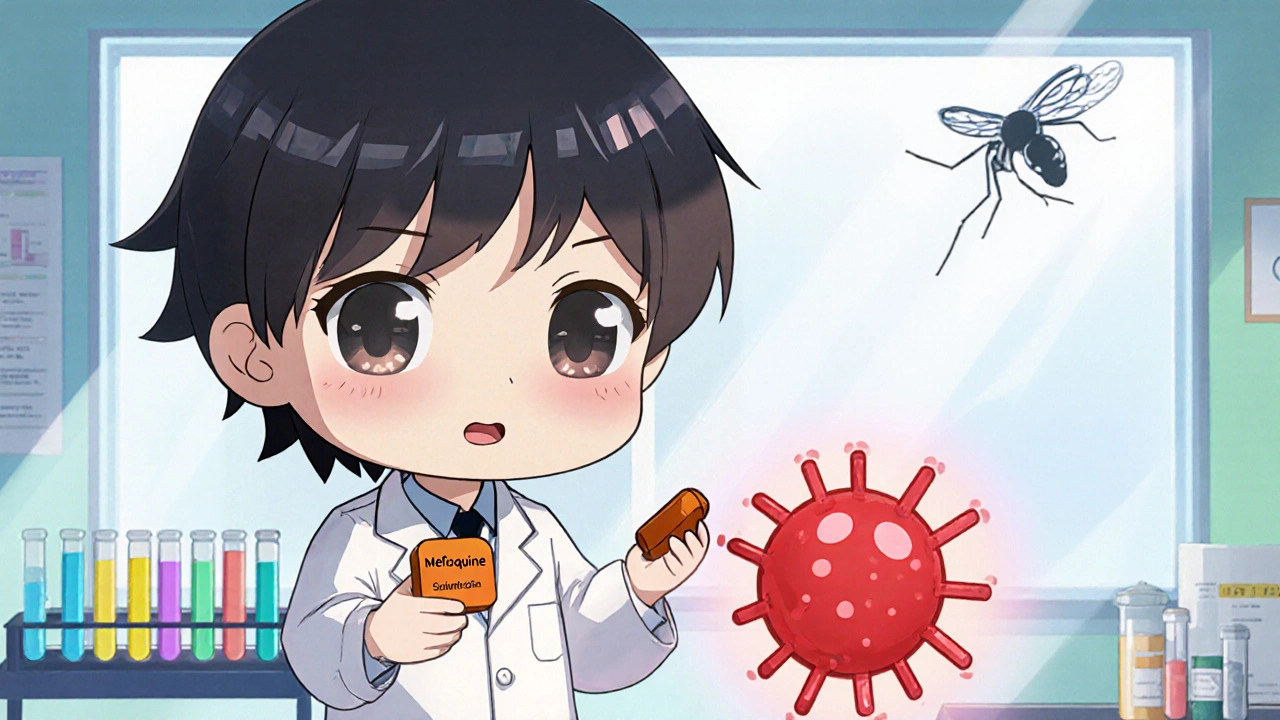Mefloquine's Role in Malaria Vaccine Development
23 Oct, 2025Explore how mefloquine, a long‑used antimalarial, can boost immune responses in malaria vaccine development, its benefits, safety concerns, and future research directions.
READ MOREWhen we talk about the malaria vaccine, a preventive tool designed to protect against infection by the Plasmodium parasite that causes malaria. Also known as RTS,S/AS01, it’s the first and only vaccine approved by the WHO for widespread use in children living in high-risk areas. Before this, the only way to fight malaria was through bed nets, insect repellent, and drugs—tools that helped, but didn’t stop transmission. The malaria vaccine changes that. It doesn’t promise 100% protection, but it cuts severe cases by about 30% and reduces hospital visits in young kids by nearly 25%. That’s not just a number—it’s lives saved, especially in places like sub-Saharan Africa where malaria kills a child every minute.
The malaria vaccine works by training the immune system to recognize the parasite’s surface protein, called CSP, before it can invade the liver. It’s given in four doses: three shots starting at 5 months old, then a booster around 18 months. This schedule matters. Missing a dose lowers protection. It’s not a one-time fix like the measles shot. And it’s not meant to replace bed nets or antimalarial drugs—it’s meant to work with them. Think of it like adding another layer to a safety net. Countries like Ghana, Kenya, and Malawi have rolled it out in national programs since 2019, and over 15 million doses have been given. Real-world data shows fewer kids ending up in hospitals with severe malaria.
But the vaccine isn’t perfect. It doesn’t work as well in older kids or adults. It doesn’t stop you from getting infected—just from getting really sick. And it’s not available everywhere. In the U.S. or Europe, you won’t find it at your local pharmacy because the risk there is near zero. But if you’re traveling to a malaria zone, you’ll still need to rely on pills like atovaquone-proguanil or doxycycline, plus bug spray and nets. The vaccine is a game-changer for kids in endemic areas, not a global replacement for existing tools. And while new vaccines like R21 are showing even better results in trials, RTS,S is the one we have now—and it’s making a real difference.
What you’ll find in the posts below isn’t a list of clinical trials or lab reports. It’s practical, real-world info from people who’ve dealt with malaria treatment, drug safety, and health systems under pressure. You’ll see how medicines like artemisinin-combination therapies are used, how drug recalls affect access in low-income regions, and how side effects from long-term antimalarials are managed. These aren’t abstract topics—they’re daily concerns for families in places where the malaria vaccine is just one part of a much bigger fight.

Explore how mefloquine, a long‑used antimalarial, can boost immune responses in malaria vaccine development, its benefits, safety concerns, and future research directions.
READ MORE